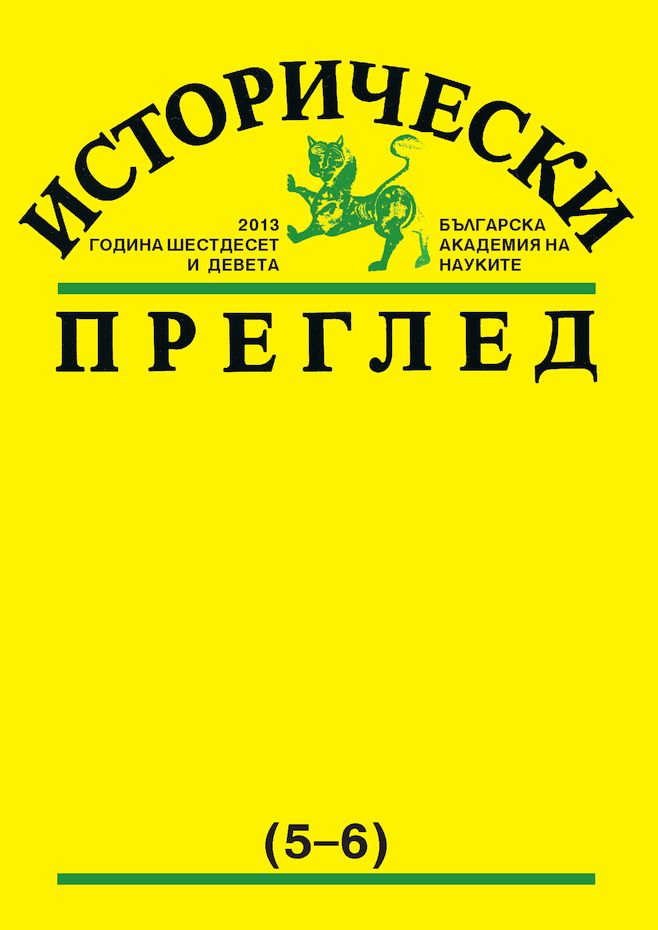Българската държава между демокрацията и диктатурата
The Bulgarian State between Democracy and Dictatorship
Author(s): Dimitar LudzhevSubject(s): Economic history, Political history, Social history, 19th Century, Pre-WW I & WW I (1900 -1919), Interwar Period (1920 - 1939), WW II and following years (1940 - 1949), Post-War period (1950 - 1989), Transformation Period (1990 - 2010), Cold-War History, Conference Report
Published by: Институт за исторически изследвания - Българска академия на науките
Keywords: Bulgarian state; political system; transformation;
Summary/Abstract: After the Liberation the Bulgarian state had a leading role in the development and modernization of the country. The article traces the changes in its institutions and functions in relation to changes in the political system. In the three decades until the First World War it was a parliamentary democracy with moments of deformation of authoritarian type, which was associated with liberal economy and significant socio-economic progress. In the interwar period bourgeois society passed through: an attempt to a left, “rural dictatorship” under the rule of the BZNS (Bulgarian Agrarian National Union); right-authoritarian dictatorship of the People’s Alliance during the government of Alexander Tsankov; restoration of parliamentary democracy under the rule of Andrey Lyapchev and the People’s Bloc; classic authoritarian regime established after the coup of May 19, 1934 and modified in the recovery of important elements of parliamentarianism and the rule of law in the years of the tsarist regime until 1944. Under all regimes, a trend was preserved to strengthen the state’s role as regulator of the economy and social relations, and to increase its contribution to the modernization of the country. After September 9, 1944 Bulgaria was ruled by a dictatorship of the Communist Party within quasi-parliamentary regime. By the end of 1948 totalitarian state was established and by the mid-1950s the totalitarian system of Soviet type was formed. The Party-state implemented expropriation of the means of production, forced collectivization and rapid industrialization, which turned Bulgaria into relatively developed industrial country with a predominantly urban population. The totalitarian system created uncompetitive economy of deficit and lack of motivation for economic activity among citizens deprived of their property and rights. After the collapse of communism in 1989, liberal democratic state began to be built and transition to a market economy on the model of Western democracy has been carried out. This new cycle of modernization of Bulgaria has been quite difficult - an incoherent and incomplete reform process, which has achieved very unsatisfactory results due mainly to the low managerial capacity of the new political elite. Its preference for the use of state power for enriching and privileges creates unproductive business, oligarchic structures and inefficient state without public capacity to provide modern development.
Journal: Исторически преглед
- Issue Year: 2013
- Issue No: 5-6
- Page Range: 10-31
- Page Count: 22
- Language: Bulgarian
- Content File-PDF

